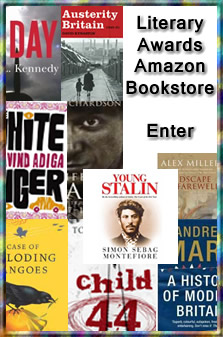About the Award The BBC FOUR Samuel Johnson Prize for Non-Fiction celebrates originality and diversity in contemporary non-fiction. Named in honour of the great critic, essayist, lexicographer, poet and biographer, the BBC FOUR Samuel Johnson Prize is the world’s richest prize for non-fiction, recognising works published in English in the UK, regardless of the nationality of the author.
The prize is worth £20,000 prize to the winner.
The BBC Samuel Johnson Prize for Non-Fiction 2010 Winner
- Nothing to Envy: Real Lives in North Korea
by Barbara Demick (Granta)
Other Shortlisted
- Alex’s Adventures in Numberland
by Alex Bellos (Bloomsbury)
- Blood Knots
by Luke Jennings (Atlantic Books)
- Too Big to Fail
by Andrew Ross Sorkin (Penguin, Allen Lane)
- A Gambling Man
by Jenny Uglow (Faber and Faber)
- Catching Fire: How Cooking made us Human
by Richard Wrangham (Profile Books)
2009 | 2008 | 2007 | 2006 | 2005 | 2004 | 2003 |2002 | 2001 |2000 | 1999
2009 Samuel Johnson
Winner

in with a BBC film-length documentary hosted also by the author. Moby Dick is
a book made mythic by its whale; but the reverse
is also true. After Melville published his book in 1851, no one saw
whales in quite the same way again. Melville created a modern myth out of
an already legendary beast. But what is the true nature of the whale?
Why does it fascinate us? All his life, Philip Hoare has been obsessed with
these creatures, from the huge skeletons in London's Natural History Museum to adult
encounters with the wild animals themselves. Whales haunt him,
s they seem to elide with dark fantasies of sea-serpents and other antediluvian monsters
that swim in our collective
unconscious.




Lords of Finance by Liaquat Ahamed -William Heinemann
Many of us take it as a given that the Great Depression resulted from a confluence of inexorable forces beyond any one person or government's control. This title explains how it was the decisions taken by a small number of central bankers that were the primary cause of the economic meltdown.
Soul of the Age: The Life, Mind and World of William Shakespeare by Jonathan Bate - Viking
A tapestry of Elizabethan beliefs and obsessions, private passions and political intrigues. It leads you on a tour of the extraordinary, colorful and often violent world that shaped and informed Shakespeare's thinking.
Pompeii by Mary Beard - Profile Books
The ruins of Pompeii, buried by an explosion of Vesuvius in 79 C.E., offer the best evidence we have of everyday life in the Roman empire. This remarkable book rises to the challenge of making engrossing sense of those remains. What kind of town was it? What can it actually tell us about life then - from sex to politics, food to religion, slavery to literacy?
A Fork in the Road by Andre Brink by Harvill Secker
Andre Brink grew up in the deep interior of South Africa, as his magistrate father moved from one dusty dorp to the next. With searing honesty, he describes his conflicting experiences of growing up in a world where innocence was always surrounded by violence. From an early age he found in storytelling the means of reconciling the stark contrasts of his world - between religion and play-acting, between the breathless discovery of a girl called Maureen and the merciless beating of a black boy, between meeting with a dwarf who lived in a hole in the ground and an encounter with a magician who threatened to teach him what he hadn't bargained for.
The Pleasures and Sorrows of Work by Alain De Botton - Hamish Hamilton
We spend most of our waking lives at work - in occupations often chosen by our unthinking sixteen-year-old selves. And yet we rarely ask ourselves how we got there or what it might mean for us. Equally intrigued by work's pleasures and its pains, Alain de Botton here heads out into the under-charted worlds of the office, the factory, the fishing fleet and the logistics centre, ears and eyes open to the beauty, interest and sheer strangeness of the modern workplace. Along the way he tries to answer some of the most urgent questions we can ask about work: Why do we do it? What makes it pleasurable?
 ||
|| 
Science: A Four Thousand Year History by Patricia Fara - Oxford University Press
Science: A Four Thousand Year History rewrites science's past. Instead of focussing on difficult experiments and abstract theories, Patricia Fara shows how science has always belonged to the practical world of war, politics, and business. Rather than glorifying scientists as idealized heroes, she tells true stories about real people - men (and some women) who needed to earn their living, who made mistakes, and who trampled down their rivals in their quest for success.
Bad Science by Ben Goldacre - Fourth Estate
Full of spleen, this will be a hilarious, invigorating and informative journey through the world of Bad Science. How do we know if a treatment works, or if something causes cancer? Can the claims of homeopaths ever be as true - or as interesting as the improbable research into the placebo effect? Who created the MMR hoax? Do journalists understand science? Why do we seek scientific explanations for social, personal and political problems? Are alternative therapists and the pharmaceutical companies really so different, or do they just use the same old tricks to sell different types of pill? We are obsessed with our health.
The Lost City of Z by David Grann- Simon and Schuster
Colonel Percy Harrison Fawcett was the last of a breed of great British explorers who ventured into 'blank spots' on the map with little more than a machete, a compass and unwavering sense of purpose. In 1925, one of the few remaining blank spots in the world was in the Amazon. Fawcett believed the impenetrable jungle held a secret to a large, complex civilization like El Dorado, which he christened the 'City of Z'. When he and his son set out to find it, hoping to make one of the most important archeological discoveries in history, they warned that none should follow them in the event that they did not return. They vanished without a trace more
The Age of Wonder: How the Romantic Generation Discovered the Beauty and Terror of Science by Richard Holmes-HarperPress
Two scientific lives dominate the book: that of William Herschel, whose tireless dedication to the stars, assisted (and perhaps rivalled) by his comet-finding sister Caroline, changed forever the public conception of the solar system, the Milky Way galaxy and the meaning of the universe itself. Meanwhile Humphry Davy, a grammar-school boy from Cornwall, shocked the scientific community with his near-suicidal gas experiments, then went on to invent the miners' lamp, and to establish British chemistry as the leading professional science in Europe - but at the cost, perhaps, of his own heart.



A Strange Eventful History: The Dramatic Lives of Ellen Terry, Henry Irving and their Remarkable Families by Michael Holroyd - Chatto & Windus
Henry Irving and Ellen Terry were the king and queen of the Victorian stage. In his first major biography for fifteen years, Michael Holroyd explores their public and private lives, showing how their artistic legacy and lines of inheritance came to influence the modern world.
An epic story spanning a century of European cultural change, A Strange Eventful History finds space for the intimate moments of daily existence as well as the bewitching fantasies played out by its subjects. Michael Holroyd has created an unforgettable drama and a vivid world that will engage and enchant his readers
Darwin's Island by Steve Jones - Little, Brown
The Origin of Species is the most famous book in science but its stature tends to obscure the genius of Charles Darwin's other works. The Beagle voyage, too, occupied only five of the fifty years of his busy career. His Galapagos visit lasted just five weeks and on his return he never left Britain again. Darwin spent forty years working on the plants, animals and people of his native land and wrote six million words, in nineteen books and innumerable letters, on topics as different as dogs, barnacles, insect-eating plants, orchids, earthworms, apes and human emotion. Together, they laid the foundations of modern biology.
Quantum: Einstein, Bohr and the Great Debate About the Nature of Reality - Manjit Kumar - Icon Books
For most people, quantum theory is a byword for mysterious, impenetrable science. And yet for many years it was equally baffling for scientists themselves. Manjit Kumar gives a dramatic and superbly-written history of this fundamental scientific revolution, and the ferocious, divisive debate at its heart. For 60 years most physicists believed that quantum theory denied the very existence of reality itself. Yet Kumar shows how the golden age of physics ignited the greatest intellectual debate of the twentieth century. While "Quantum" setsThe Man Who Invented History by Justin Marozzi - John Murray
Herodotus is known as the Father of History, but he was much more than that. He was also the world's first travel writer, a pioneering geographer, anthropologist, explorer, moralist, tireless investigative reporter and enlightened multiculturalist before the word existed. He was at once learned professor and tabloid journalist, with an unfailing eye for fabulous material to inform and amuse, to titillate, horrify and entertain. In his masterpiece the Histories, tall stories of dog-headed men, gold-digging ants and flying snakes jostle for space within a mesmerising narrative of the Persian Wars,
Hester: the Remarkable Life of Dr Johnson’s ‘Dear Mistress’ by Ian McIntyre - Constable
Hester Salusbury was a child prodigy. Later, as Hester Thrale, her wit, learning and vivacity would attract the greats of the day, Joshua Reynolds, Fanny Burney, Boswell, David Garrick and Edmund Burke to the household at Streatham Park. She published to great popularity and acclaim on Johnson, irritating the hell out of Boswell, and remains one of our most perceptive sources. One of our first female historians, a feminist without knowing it, she also broke new ground in politics and business. When her husband died, rumours flew that she'd wed Johnson. Instead, she ran off with..



A Book of Silence by Sara Maitland - Granta
After a noisy upbringing as one of six children, and adulthood as a vocal feminist and mother, Sara Maitland began to crave silence. Over the past five years, she has spent periods of silence in the Sinai desert, the Australian bush, and a remote cottage on the Isle of Skye. Her memoir of these experiences is interwoven with the history of silence through fairy-tale and myth, Western and Eastern religious traditions, the Enlightenment and psychoanalysis, up to the ambivalence towards silence in contemporary society. Maitland has built a hermitage on an isolated moor in Galloway, and the book culminates powerfully with her experiences of silence in this new home. "A Book of Silence" is ..
Sissinghurst: An Unfinished History by Adam Nicolson - HarperPress
The story of Sissinghurst an estate in the Weald of Kent, is told here for the first time from the very beginning. Adam Nicolson, who now lives there, has uncovered remarkable new findings about its history as a medieval manor and great sixteenth-century house, from the days of its decline as an eighteenth-century prison to a flourishing Victorian farm and on to the creation, by his grandparents Vita Sackville-West and Harold Nicolson, of a garden in a weed-strewn wreck.The Wisdom of Whores by Elizabeth Pisani - Granta
Elizabeth Pisani has spent ten years working as a scientist in the bloated AIDS industry. In "The Wisdom of Whores", she unfolds a universe of brothels and bureaucracies, of bickering junkies and squabbling charities, of men who sell sex and men who would rather prohibit it. Illustrating solid science with ribald tales from the frontlines of sex and drugs, "The Wisdom of Whores" explains how we could shut down HIV everywhere except sub-Saharan Africa. We could do it with a few, simple steps. We could do it with less money than we already have. But we won't. This book shows how politics, ideology and money - lots of money, ten billion dollars a year - have bulldozed through scientific evidence and common sense.The consequences of our global hypocrisy are
The House of Wittgenstein by Alexander Waugh - Bloomsbury
The Wittgenstein family was one of the richest, most talented and most eccentric in European history. Karl Wittgenstein, who ran away from home as a wayward and rebellious youth, returned to his native Vienna to make a fortune in the iron and steel industries. He bought factories and paintings and palaces, but the domineering and overbearing influence he exerted over his eight children resulted in a generation of siblings fraught by inner antagonisms and nervous tension. Three of his sons committed suicide; Paul, the fourth, became a world-famous concert pianist (using only his left hand), while Ludwig, the youngest, is now regarded more
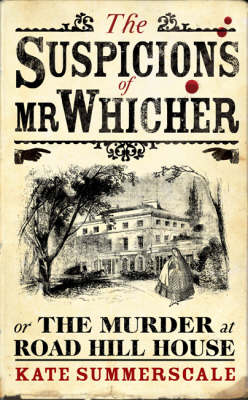
2008 Winner - Murder tale scoops Johnson prize
The Suspicions Of Mr Whicher by Kate Summerscale
It is a summer's night in 1860. In an elegant detached Georgian house in the villag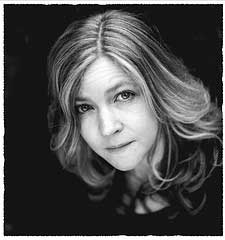 e of Road, Wiltshire, all is quiet. Behind shuttered windows the Kent family lies sound asleep. At some point after midnight a dog barks. The family wakes the next morning to a horrific discovery: an unimaginably gruesome murder has taken place in their home. The household reverberates with shock, not least because the guilty party is surely still among them. Jack Whicher of Scotland Yard, the most celebrated detective of his day, reaches Road Hill House a fortnight later. He faces an unenviable task: to solve a case in which the grieving family are the suspects. The murder provokes national hysteria. The thought of what might be festering behind the closed doors of respectable middle-class homes - scheming servants, rebellious children, insanity, jealousy, loneliness and loathing - arouses fear and a kind of excitement. But when Whicher reaches
e of Road, Wiltshire, all is quiet. Behind shuttered windows the Kent family lies sound asleep. At some point after midnight a dog barks. The family wakes the next morning to a horrific discovery: an unimaginably gruesome murder has taken place in their home. The household reverberates with shock, not least because the guilty party is surely still among them. Jack Whicher of Scotland Yard, the most celebrated detective of his day, reaches Road Hill House a fortnight later. He faces an unenviable task: to solve a case in which the grieving family are the suspects. The murder provokes national hysteria. The thought of what might be festering behind the closed doors of respectable middle-class homes - scheming servants, rebellious children, insanity, jealousy, loneliness and loathing - arouses fear and a kind of excitement. But when Whicher reaches
Other Shortlisted- BBC FOUR SAMUEL JOHNSON PRIZE FOR NON-FICTION 2008
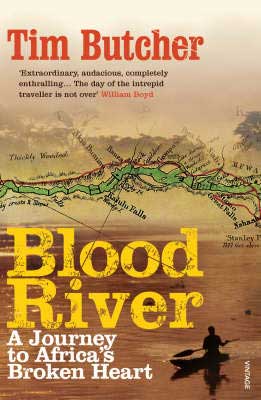 |
|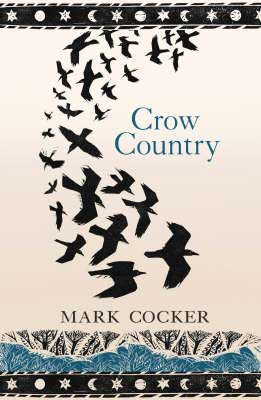 |
| 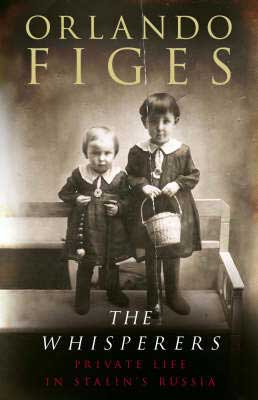 |
| 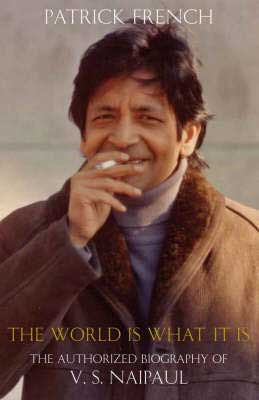 |
| 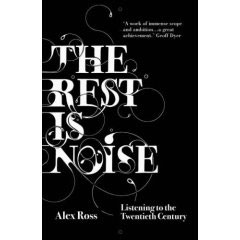
Blood River: A Journey to Africa’s Broken Heart by Tim Butcher (Vintage)
The author set out for the Congo's eastern border with just a rucksack and a few thousand dollars hidden in his boots with the idea of recreating H M Stanley's famous expedition. This book tells of the author's journey and the story of Congo; as he made his way in an assortment of vessels including a motorbike and a dugout canoe.
Crow Country by Mark Cocker (Jonathan Cape)
Rooks and jackdaws are both members of the same bird family. To ornithologists the group is known as the corvids, to the layperson they are 'crows'. This is a prose poem in a tradition of English pastoral writing. It is also a celebration of the...
The Whisperers by Orlando Figes (Allen Lane)
Drawing on letters, memoirs, conversations, this book tells the story of how Russians tried to endure life under Stalin. It recreates the sort of maze in which Russians found themselves, where an unwitting wrong turn could either destroy a family or, perversely, later save it.
The World Is What It Is: The Authorized Biography of V.S. Naipaul by Patrick French (Picador)
A biography of V S Naipaul, Nobel Prize winner and one of the most compelling literary figures. It looks sensitively and unflinchingly at his relationships, his development as a writer and as a man, his outspokenness, his peerless creativity, and, his extraordinary and enduring position both outside and at the very centre of literary culture.
The Rest is Noise by Alex Ross (Fourth Estate)
A sweeping musical history that goes from the salons of pre-war Vienna to Velvet Underground shows in the sixties. In The Rest is Noise, Alex Ross, music critic of the New Yorker, gives us a riveting tour of the wild landscape of twentieth-century classical music: portraits of individuals, cultures, and nations reveal the predicament of the composer in a noisy, chaotic century. Taking as his starting point a production of Richard Strauss's Salome, conducted by the composer on 16 May 1906 with Puccini, Schoenberg, Berg and Adolf Hitler seated in the stalls,
 2007 - Samuel Johnson- Winner
2007 - Samuel Johnson- WinnerImperial Life in the Emerald City: Inside Iraq's Green Zone Rajiv Chandrasekaran (Bloomsbury)
From a walled-off enclave of towering plants, smart villas and sparkling swimming pools - a surreal bubble of pure Americana known as the Green Zone - the US-led Coalition Provisional Authority, under imperial viceroy L. Paul Bremer III, attempted to rule Iraq in the first twelve months after the fall of Saddam Hussein's regime. Drawing on hundreds of interviews and internal documents, Rajiv Chandrasekaran tells the memorable story of this ill-prepared attempt to build American democracy in a war-torn Middle Eastern country, detailing not only the risky disbanding of the Iraqi army and the ludicrous attempt to train the new police force, but also bringing to light a host of lesser-known yet typical travesties, among them: the aide who based Baghdad's new traffic laws on those of the state of Maryland, downloaded; the contractor with no previous experience paid millions to guard a closed airport; the people with prior experience in the Middle East who were excluded in favour of lesser-qualified Republican Party loyalists; the case of the 24-year-old who had never worked in finance put in charge of revitalising Baghdad's stock exchange. Written with wit and urgency by a sharp-eyed observer, "Imperial Life in the Emerald City" provides a hair-raising portrait of the gap between the Oz-like Green Zone and the brutal reality of post-war Iraq. It is American reportage at its best.
2007 Other Shortlisted
Mur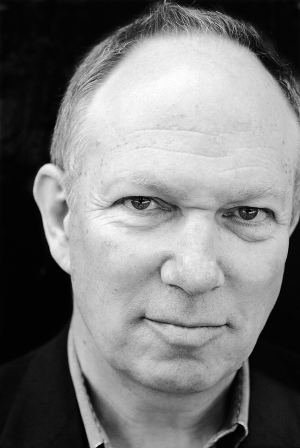 der in Amsterdam: The Death of Theo Van Gogh and the Limits of Tolerance
der in Amsterdam: The Death of Theo Van Gogh and the Limits of Tolerance
By Ian Buruma (left) (Atlantic Books)
The story of the murder of controversial Dutch film maker Theo van Gogh, killed by a young Muslim who objected to one of his works.
Having It So Good: Britain in the Fifties
By Peter Hennessey (Allen Lane)
Account of Britain's emergence from the shadow of war and rationing into a period of growing affluence - but declining influence.
Daughter of the Desert: The Extraordinary Life of Gertrude Bell
By Georgina Howell (Pan Macmillan)
Biography of the remarkable Gertrude Bell - archaeologist, Arabist, spy, linguist, author, poet, photographer and mountaineer.
Brainwash: The Secret History of Mind Control
By Dominic Streatfeild (Hodder and Stoughton)
The story of the world's most secret psychological procedure, from its origins in the Cold War to its part in today's 'war on terror'.
The Verneys: A True Story of Love, War and Madness in Seventeenth-century England
By Adrian Tinniswood (Jonathan Cape)
Based on the near-miraculous survival of tens of thousands of Verney family letters in an attic, this is an intimate portrait of 17th century English life.
Past Winners and Shortlists
2006
The 2006 winner was James S. Shapiro for 1599: A Year in the Life of William Shakespeare
The shortlist was:
* Alan Bennett, Untold Stories
* Jerry Brotton, The Sale of the Late King's Goods: Charles I and His Art Collection
* Carmen Callil, Bad Faith: A Forgotten History of Family and Fatherland/strong>
* Tony Judt Postwar: A History of Europe Since 1945
* Tom Reiss The Orientalist: In Search of a Man Caught Between East and West
The 2005 winner was Jonathan Coe for Like A Fiery Elephant: The Story of B.S. Johnson
The shortlist was:
* Alexander Masters Stuart: A Life Backwards
* Suketu Mehta Maximum City
* Orhan Pamuk Istanbul
* Hilary Spurling Matisse the Master
* Sarah Wise The Italian Boy: Murder and Grave-Robbery in 1830s London
2004
The 2004 winner was Anna Funder for Stasiland
The shortlist was:
* Anne Applebaum Gulag: A History of the Soviet Camps
* Jonathan Bate John Clare: A Biography
* Bill Bryson A Short History of Nearly Everything
* Aidan Hartley The Zanzibar Chest: A Memoir of Love and War
* Tom Holland Rubicon: The Triumph and Tragedy of the Roman Republic
2003
The 2003 winner was T.J. Binyon for Pushkin
The shortlist was:
* Orlando Figes, Natasha's Dance: A Cultural History of Russia
* Aminatta Forna, The Devil that Danced on the Water: A Daughter's Memoir of her Father, her Family, her Country and a Continent
* Olivia Judson, Dr Tatiana's Sex Advice to All Creation
* Claire Tomalin, Samuel Pepys: The Unequalled Self
* Edgar Vincent, Nelson: Love and Fame
2002
The 2002 winner was Margaret MacMillan for Peacemakers: The Paris Peace Conference of 1919 and Its Attempt to End War
The shortlist was:
* Eamon Duffy, The Voices of bath
* William Fiennes, The Snow Geese
* Richard Hamblyn, The Invention of Clouds: How an Amateur Meteorologist Forged the Language of the Skies
* Roy Jenkins, Churchill: a Biography
* Brendan Simms, Unfinest Hour: Britain and the Destruction of Bosnia
2001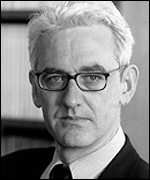
The 2001 winner was Michael Burleigh (left) for The Third Reich: A New History
The shortlist was:
* Richard Fortey, Trilobite! Eyewitness to Evolution
* Catherine Merridale, Night of Stone
* Graham Robb, Rimbaud
* Simon Sebag Montefiore, Prince of Princes: The Life of Potemkin
* Robert Skidelsky, John Maynard Keynes
2000
The 2000 winner was David Cairns for Berlioz Volume Two: Servitude and Greatness
The shortlist was:
* Tony Hawks, Playing the Moldovans at Tennis
* Brenda Maddox, Yeats's Ghosts
* Matt Ridley, Genome
* William Shawcross, Deliver Us From Evil
* Francis Wheen, Karl Marx
1999
The 1999 winner was Antony Beevor for Stalingrad
The shortlist was:
* Ian Kershaw, Hitler
* Ann Wroe, Pilate
* John Diamond, C: Because Cowards Get Cancer Too
* Richard Holmes, Coleridge: Darker Reflections
* David Landes, The Wealth and Poverty of Nations






